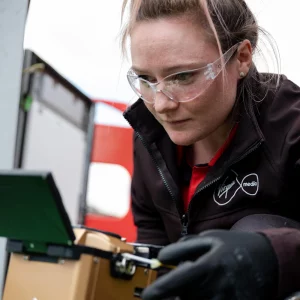Sponsored Links
TalkTalk UK Prophesizes the Death of ISP Email Services
Posted: 17th Nov, 2009 By: MarkJ
 Broadband ISP TalkTalk ( The Carphone Warehouse ) has predicted that email could "die out ... in the next 10 years" because younger Internet users are increasingly switching to using Instant Messaging (IM) and Twitter style services to communicate. It probably doesn't help that email is still being SPAMMED (junk mail) to death, with nearly 9 in 10 messages being rubbish.
Broadband ISP TalkTalk ( The Carphone Warehouse ) has predicted that email could "die out ... in the next 10 years" because younger Internet users are increasingly switching to using Instant Messaging (IM) and Twitter style services to communicate. It probably doesn't help that email is still being SPAMMED (junk mail) to death, with nearly 9 in 10 messages being rubbish.TalkTalk's research, which was conducted with a social anthropologist from the University of Kent, also found that Britain has over 2 million “First Lifers” – those in their late teens or early 20s – who are tech savvy but don’t like being stuck at a desk.
For First Lifers, email is going out of style – and fast. Barely half (51%) regularly use email anymore, with many young people instead opting for shorter communications like Twitter and Facebook updates to keep in the loop, supplemented by text messages, instant messaging when they’re out and about.
The so called First Lifers apparently prefer these technologies as they enable them to contact whole groups of friends rather than individuals one at a time. So are we to assume that the simple concept of a CC has gone totally unnoticed? Contacting multiple people at one time has always been a critical function of email.
Mark Schmid from TalkTalk said:
“Email has been the dominant mode of communication over the internet for the past 20 years, but that doesn’t mean it always will be. Increasingly people want to send quick, short messages reaching many people in one go, and there are now better ways of doing that than via email. Based on the trends we’re seeing now, email could well be on its last legs by the end of the next decade.”
“Email has been the dominant mode of communication over the internet for the past 20 years, but that doesn’t mean it always will be. Increasingly people want to send quick, short messages reaching many people in one go, and there are now better ways of doing that than via email. Based on the trends we’re seeing now, email could well be on its last legs by the end of the next decade.”
Ironically all of these services still required a working email address before you can register the account :tongue: , but nobody seems to have considered that. So in actual fact we think that email will still be very necessary, especially for administrative (as above) tasks and in businesses. However we do agree that it is definitely less and less likely to be a front line service.
Search ISP News
Search ISP Listings
Search ISP Reviews
Latest UK ISP News








Cheap BIG ISPs for 100Mbps+
150,000+ Customers | View More ISPs
Cheapest ISPs for 100Mbps+
Modest Availability | View More ISPs
Latest UK ISP News
Helpful ISP Guides and Tips
Sponsored Links
The Top 15 Category Tags
- FTTP (6802)
- BT (3882)
- Politics (3076)
- Business (2767)
- Openreach (2663)
- Building Digital UK (2513)
- Mobile Broadband (2476)
- FTTC (2142)
- Statistics (2130)
- 4G (2093)
- Virgin Media (2026)
- Ofcom Regulation (1780)
- 5G (1733)
- Fibre Optic (1604)
- Wireless Internet (1595)
Sponsored
Copyright © 1999 to Present - ISPreview.co.uk - All Rights Reserved - Terms , Privacy and Cookie Policy , Links , Website Rules






























